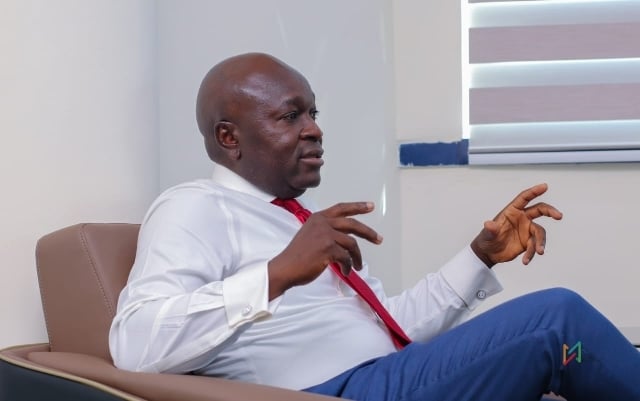Seidu Agongo, a prominent businessman and philanthropist, has issued a strong call to action to the incoming administration of President Mahama, urging a swift and comprehensive investigation into alleged corruption and mismanagement under the previous government led by former President Nana Akufo-Addo. Agongo emphasized the urgency of this undertaking, proposing a strict six-month timeframe for uncovering any wrongdoing and holding those responsible accountable, regardless of their political affiliations. He underscored the severity of the current situation in Ghana, citing widespread suffering and hardship as compelling reasons for immediate action. His remarks, delivered on the CTV program “Master of the Game,” hosted by Kwasi Kyei Darkwah, painted a stark picture of a nation grappling with economic hardship and a breakdown in governance.
Agongo’s primary concern revolves around the perceived culture of impunity and the lack of accountability within the political system. He believes that the previous administration fostered an environment where political favoritism and unmeritorious appointments were rampant, leading to a systemic erosion of good governance. This, he argues, allowed individuals to exploit their positions for personal gain at the expense of the nation’s well-being. He condemned the practice of appointing individuals based on personal connections rather than merit, stressing that such appointments should come with a responsibility to strengthen the system, not to exploit it for personal enrichment.
The philanthropist further highlighted the widespread suffering of ordinary Ghanaians, citing examples such as women giving birth on hospital floors due to inadequate facilities, citizens struggling to afford basic necessities like food and education, and workers facing economic hardship. He contrasted this stark reality with the alleged opulence and corruption of some political elites, arguing that the nation’s resources should be used to alleviate the suffering of the people, not to enrich a select few. Agongo’s impassioned plea underscores the deep-seated frustration and disillusionment felt by many Ghanaians who perceive a disconnect between the political elite and the struggles of everyday citizens.
Furthermore, Agongo cautioned against any delays or attempts to shield individuals implicated in wrongdoing, regardless of their political stature. He expressed concern over a potential “cover my back, I cover your back” culture among political elites, which he believes could obstruct the pursuit of justice and accountability. He emphasized that the investigation must be thorough and impartial, leaving no room for political maneuvering or protectionism. The six-month timeframe, he argued, is crucial for demonstrating a genuine commitment to addressing the issue and restoring public trust in the government.
Agongo’s criticisms extended beyond the political sphere, encompassing the broader socio-economic challenges facing Ghana. He depicted a grim reality of everyday life, citing the plight of market women at Agbogbloshie, the poor state of major highways like the Kumasi-Accra road, and the widespread lack of access to essential amenities like water. These observations, coupled with his earlier comments about the suffering of ordinary Ghanaians, paint a comprehensive picture of a nation struggling with systemic issues that demand immediate attention. His concerns resonate with the lived experiences of many Ghanaians and underscore the need for a more equitable and just society.
Finally, Agongo’s personal reflections on his reluctance to enter politics provided a poignant conclusion to his remarks. He expressed his inability to stand idly by while witnessing the suffering of the Ghanaian people and the perceived disregard for their well-being by those in power. This statement, coupled with his call for accountability and swift action, highlights his deep-seated commitment to the betterment of his country. His philanthropic work and outspoken advocacy position him as a voice for the voiceless, demanding change and urging a more just and equitable future for all Ghanaians. His call for a swift and thorough investigation into alleged corruption is not simply a political statement, but a moral imperative driven by a deep concern for the well-being of his fellow citizens.














